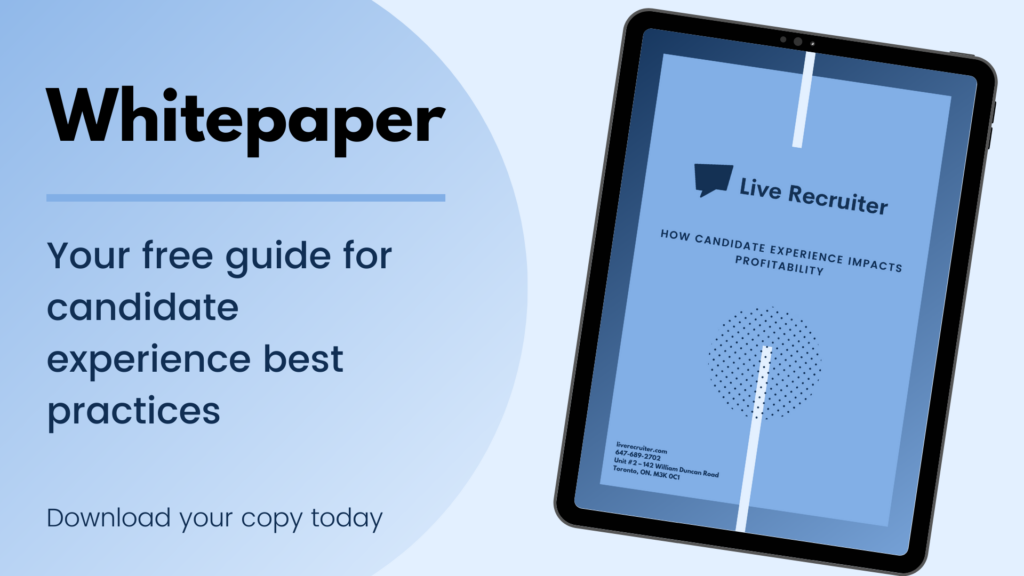What are soft skills?
Soft skills (also known as interpersonal skills, non-cognitive skills, and essential skills) are the non-technical skills that impact how people work. These include interpersonal skills relating to communication and relationship management and skills related to problem solving. Hard skills and technical qualifications alone are not enough for success in a given role. Nearly all jobs cite certain soft skills as a requirement. These skills are critical for cultural fit and job performance; they are imperative for career advancement and are the key to success. Up to 25% of a required skill set for a given role involves soft skills. Non-cognitive are particularly relevant in customer-centred jobs (such as sales or positions in the service industry) as they require interpersonal interaction outside of the company which reflects back on their brand. Soft skills are transferable, meaning that they are relevant to multiple roles and can even carry over across industries. Job seekers with a solid set of soft skills make for very adaptable candidates; many employers value that flexibility. See below for a list of some of the most relevant soft skills that are in high demand by employers today.
- Good communication
- Adaptability
- Leadership
- Creativity
- Problem-solving
- Conflict resolution
- Dependability
- Teamwork
- Initiative
- Work ethic
- Time management
- Responsibility
- Critical thinking
- Integrity
Soft skills vs hard skills
Hard skills are learned capabilities acquired and improved through education, practice, and repetition. Hard skills include the ability to use software and tools (ex: Microsoft Excel, PhotoShop, Adobe Illustrator, PowerPoint, etc), fluency in a language, programming capabilities, writing skills, and bookkeeping, amongst others. Proficiency in hard skills is measurable. On a resumé, a degree (ex: MBA, Bachelor of Engineering, etc), certification (ex: Chartered Professional Accountant, Certified Associate in Project Management, etc), or number of years of experience give employers an objective understanding of a candidate’s skills and level of expertise.
Unlike hard skills, soft skills are not quantifiable. This makes them harder to accurately identify and assess during the early stages of onboarding. Once the employer narrows down the hiring pool based on hard skills and begins conducting interviews, non-cognitive skills become a crucial differentiating factor that informs the hiring decision.
According to LinkedIn’s Global Talent Trends 2019 report, the vast majority of recruiters reported that hard skills alone are not sufficient criteria in a hiring decision. They also stated that the reason that new hires don’t work out is, in most cases, due to a lack of soft skills. See below for the survey breakdown.
Why is soft skills assessment a challenge for recruiters?
Due to the fact that these essential skills are not quantifiable, gauging them requires a nuanced and proactive approach. This is why soft skills assessment is easiest at the interview stage, where employers come face to face with candidates and are able to get a sense of their personalities and professional traits. One study by NextAdvisor found that 56% of candidates were caught lying on their resumés. On a resumé, hard skills need to be backed up with prior experience, education, or a certification. Non-cognitive skills, on the other hand, are not so easily verified, which is something that some candidates take advantage of by being dishonest in hopes of landing the job. With this in mind, the interview stage is particularly critical for employers to develop an accurate sense of what soft skills the candidate truly possesses.
Employers should create job descriptions with carefully thought-out essential skills to provide both the interviewer and candidate with clear expectations so that all parties understand what the job requires. Having these clearly laid out expectations from the outset is essential. Interviewers tend to judge soft skills subjectively and can be biased towards applicants who are similar to them, which can result in an echo chamber dynamic at the organization and limits different perspectives.
Asking the right questions to assess for soft skills
When inquiring about soft skills, employers should be deliberate in how they ask questions. Yes or no questions are unlikely to yield accurate, valuable insights. For example, if an interviewer asks a candidate “are you an effective team player?” the candidate can reply with a simple “yes”. This is no guarantee that they are a good team player, as they may just be overstating their qualities in order to appease the employer. Accordingly, open-ended questions that encourage candidates to come up with specific examples or recall past experiences provide considerably more insight into essential skills than yes or no questions. Below are a few examples of open-ended questions to assess candidates for these skills.
- Teamwork: Was there a time when there was an argument in the group? How did you handle it?
- Communication: Can you tell me about a time when you and one of your co-workers miscommunicated? How did you handle the situation?
- Adaptability: Tell me about a time you had to learn a completely new method or system for doing your work. How did you react?
- Initiative: Tell me about a time there was a problem at work. What did you do to fix it?
- Responsibility: Can you tell me about a time when you fell behind in your workload? What did you do?
- Integrity: Was there ever a time when you saw a co-worker do something wrong? What did you do?

3 innovative ways to screen for interpersonal skills
Have the candidate rank their soft skills
Rather than simply asking candidates if they possess a given interpersonal skill, employers should ask candidates to rank their skills from strongest to weakest. This compels candidates to reflect on their soft skills in relative terms and yields more honest insights than a yes or no question. For example, if a position requires creativity, problem solving, and adaptability, a candidate may be very creative and effective at problem solving but inflexible. Having them rank these skills gives the interviewer a realistic look at the candidate’s abilities and highlights areas where they may need additional support or mentorship.
Have a reference rank a candidate’s soft skills
While a candidate’s insights into their own soft skills are valuable, corroborating their input with a reference ensures that the candidate’s statements are accurate. If the reference ranks soft skills that are most relevant to the job as the candidate’s weakest skills, this calls into question the candidate’s viability for the role. Alternatively, if the reference confirms that the employee’s soft skills are a match for the position, this gives the employer some assurance that the hire will be successful. After all, soft skills mismatches account for 89% of cases of bad hires not working out. Implementing this strategy is key for preventing turnover.
AI-based assessments
Scenario-based questions, such as those listed above, can be automated and integrated into the recruitment process through the use of NLP tools such as chatbots. Furthermore, this is especially pertinent in remote onboarding and can provide employers with valuable candidate insights at a high volume.
Final takeaways
Interpersonal skills are essential for success in any role across industries but are notoriously difficult to gauge due to their subjective nature. Candidates can be dishonest about the soft skills that they possess, while an interviewer’s approach to soft skills assessment can potentially perpetuate their own personal biases. Thankfully, there are tools and strategies at recruiters’ disposal that allow them to accurately assess candidates’ soft skills, such as open-ended scenario questions, chatbots, and contacting references. These transferable skills are the key to candidates’ success; soft skills assessment is an essential component of an effective recruitment strategy.



